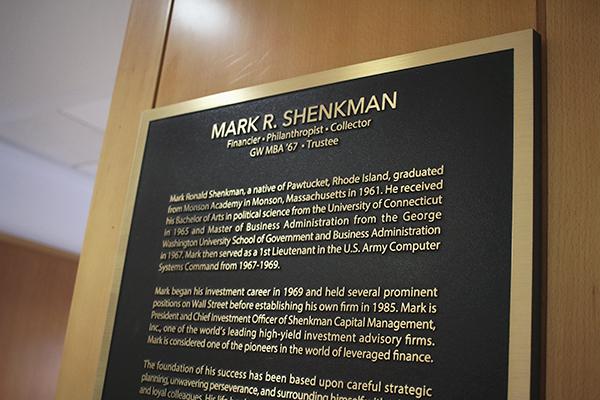When alumnus Morgan Corr makes a donation to GW, he’s not thinking about the University’s most recent national ranking.
“Every few weeks there’s a new ranking from another ‘authoritative’ publication that somehow slightly tweaks this or that factor and suddenly the results are significantly different,” he said.
GW dropped to No. 57 in U.S. News & World Report rankings this month, the fourth year it has fallen in the list. But when alumni think about making a donation, they likely don’t look at rankings, experts and alumni say.
Corr, who graduated in 2007 and serves as the secretary of the GW Alumni Association, said rankings tend to “compare apples to oranges to screwdrivers,” which makes the numbers lose any sort of persuasive quality.
“I give to GW because GW helped change my life, was an extremely positive experience and it’s something I want others to have the benefit of having as well,” he said.
But what improves the University are donations, Corr said. He’s donated to the LGBT resource center, his fraternity Sigma Chi and the Power and Promise scholarship fund.
Vice President for Development and Alumni Relations Aristide Collins said in an email that the excitement behind fundraising goals like the $1 billion campaign would motivate alumni to donate more than a ranking. GW is already $790 million into its $1 billion campaign, an accomplishment that would make alumni want to join in, Collins said.
“Rankings are just one of many ways that institutions are evaluated,” he said. “Alumni and donors are primarily interested in the quality of the academics and the overall student experience.”
GW’s alumni giving rate between 2012 and 2014 was about 8 percent, according to U.S. News, a rate lower than all but one of GW’s 14 peer institutions. The giving rate made up 5 percent of the the U.S. News ranking, according to the report’s website. The report says that the alumni giving rate is “an indirect measure of student satisfaction.”
Jeremy Gosbee, the president of the GW Alumni Association, said in an interview that he hasn’t heard alumni voice concerns about the ranking, and said it likely would have no effect on donation rates.
“No ranking like that can really accurately reflect a place like GW,” he said. “And if you start putting some of those colleges side by side that are on that list, GW’s way better than some of those other schools for certain reasons.”
Gosbee said he would be more interested in looking at the University’s rankings in more specific areas, like how a university’s alumni network is helping out current students. He added that when he talks to alumni, he shares memories of his Commencement ceremony and meeting a recipient of a scholarship he financed — examples of the nostalgia that experts say drives donations.
Tim Winkler, the chief executive of the fundraising firm Winkler Group, said rankings don’t impact donations when the university’s rankings are dropping.
“Most alums enjoy having their alma mater ranked, and they like to see that, and certainly that can be a good leverage point, but it’s just so subjective,” he said.
Colleen Murphy contributed reporting.







